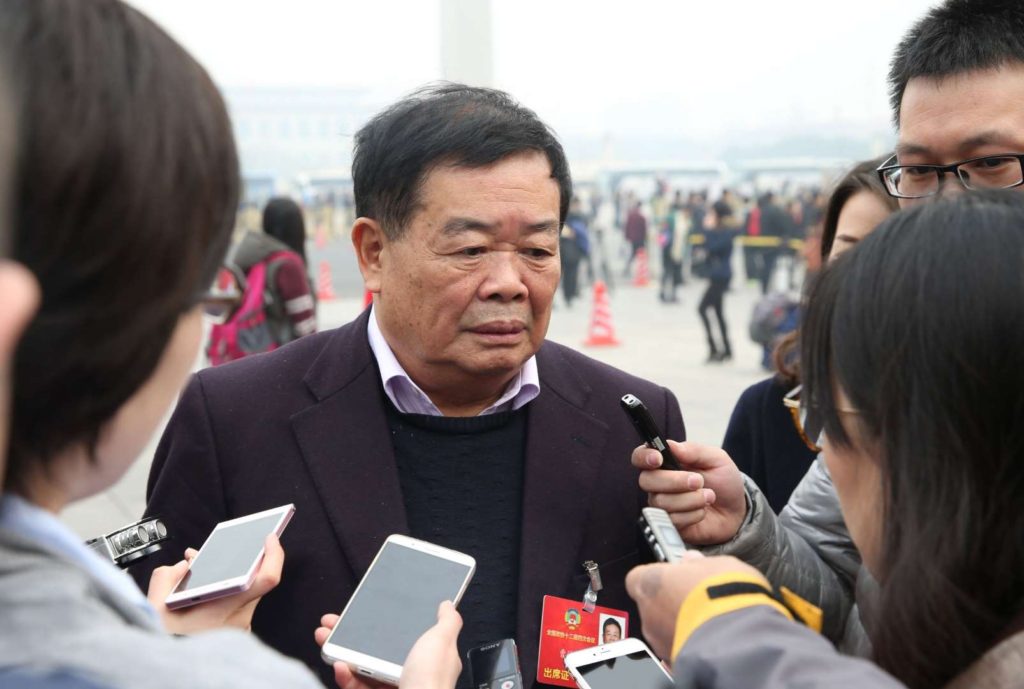While it has been said for a long time that the U.S. is bleeding manufacturing jobs overseas, particularly to China, some businesses have been moving operations the other way round.
And now, the head of a leading Chinese glass maker making the same move has openly questioned if his country really is such a lucrative destination for offshore factories, reports Hong Kong newspaper the South China Morning Post.
Overall speaking, the tax burden for manufacturers in China is 35% higher than in the U.S., Cao Dewang told China Business Network. He added that a combination of cheap land, reasonable energy prices and other incentives means that, despite higher manufacturing costs, he can still make more money by making glass in the U.S. than by exporting Chinese-made panes to the U.S. market.

Cao Dewang, center, Chairman of Fuyao Group and Chairman of Fuyao Glass Industry Group Co., is interviewed as he arrives at the Great Hall of the People to attend the opening session for the Fourth Session of the 12th National Committee of the CPPCC (Chinese People’s Political Consultative Conference) in Beijing, China, 3 March 2016.
His company, Fuyao Glass, has invested over $1 billion stateside, according to the Post, the most significant move of which is opening its U.S. factory in the Ohio town of Moraine, a suburb of Dayton, back in October. The glass maker is re-purposing the town’s former General Motors assembly that had been standing empty since late 2008, as the Dayton Daily News reports.
According to Ohio TV station WDTN, the plant now employs a workforce of almost 2,000, and Cao expects that the fully operational facility will employ up to 3,000 workers.
Wage and transportation costs are getting higher in China, Cao says. Compared with four years ago, labor wages [in China] today have tripled, he told China Business Network. Meanwhile, transportation in the U.S. costs the equivalent of less than one yuan ($) per kilometer, while road tolls [in China] are higher, he added, pointing out that some mid- and small-sized Chinese enterprises have already started moving to Southeast Asian countries like Vietnam and Cambodia for cheaper wages and materials.
Fuyao is not the first Chinese business making the move across the Pacific in recent years. According to the Wall Street Journal, Chinese companies invested over $20 billion in the U.S. last year -from a practically nonexistent total investment back in 2006.
And yet, it would probably be mistaken to write off the world’s second largest economy as a manufacturing powerhouse once and for all. As Fortune reported in early December, the latest data indicates that China’s manufacturing sector is in its strongest position in some years, buttressing the country’s economic growth along the way.
Written by Kevin Lui – Fortune.com – December 22, 2016
Original Source: http://fortune.com/2016/12/22/us-china-manufacturing-costs-investment/





